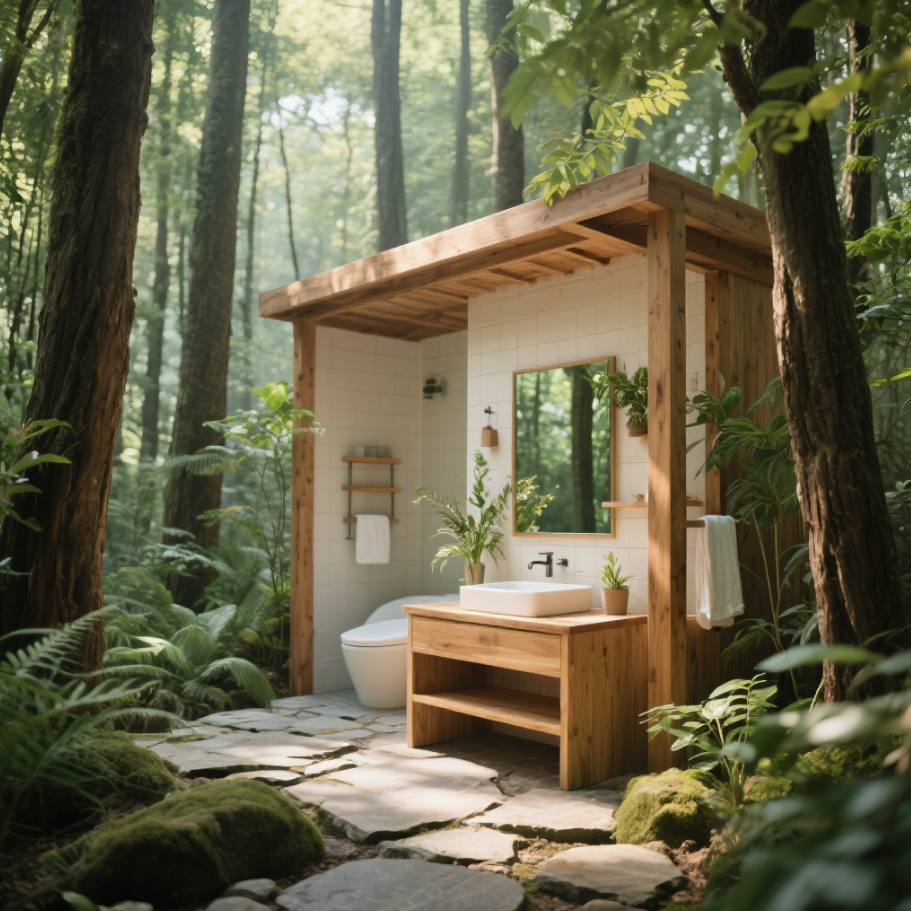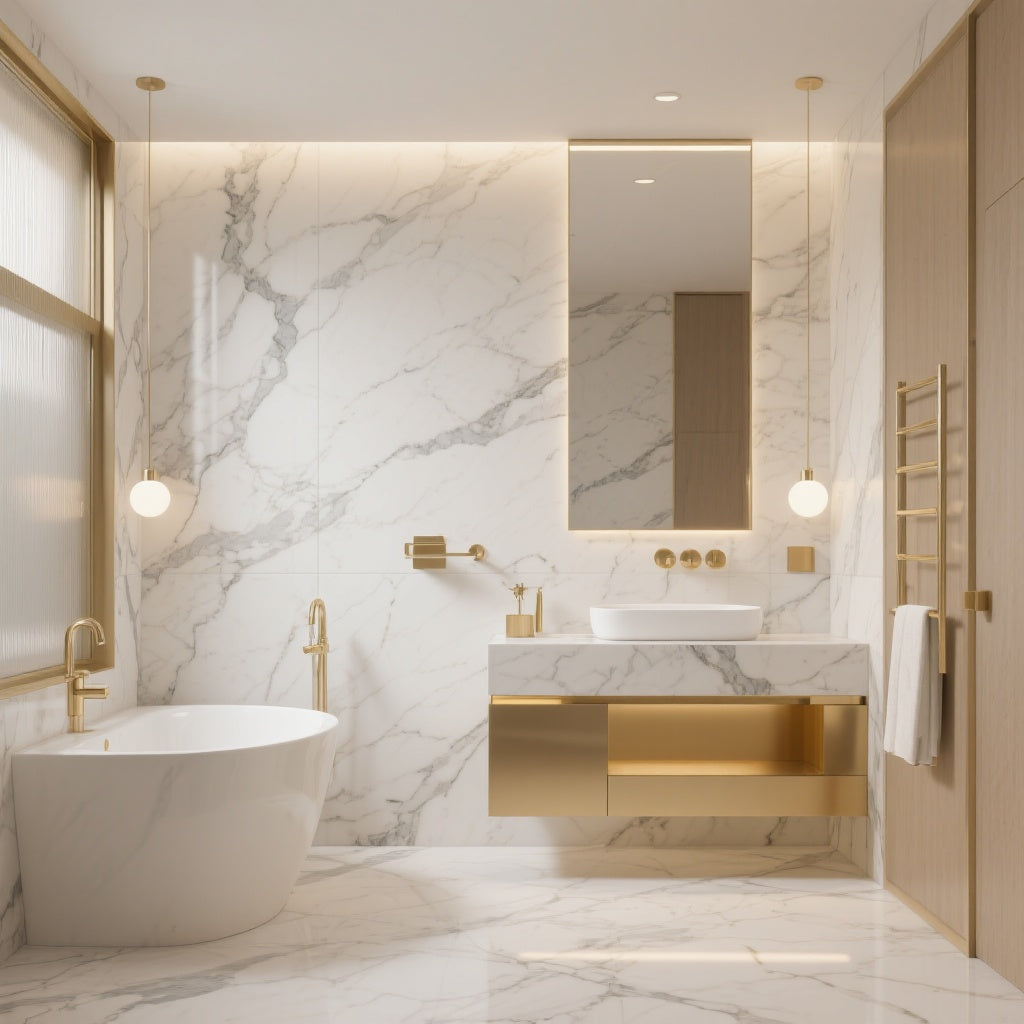The Importance of Child Home Safety

In modern households, child safety has become one of parents' primary concerns. Statistics show that over 2.5 million children seek medical attention for home-related injuries each year, with bathrooms and kitchens being the highest-risk areas. Particularly for toddlers, who are naturally curious and quick-moving but lack fully developed self-protection awareness and abilities, bathroom vanity edges pose significant potential hazards.
✅ Child Home Injury Statistics
Research from the U.S. Centers for Disease Control and Prevention (CDC) indicates that furniture-related collisions are the third leading cause of non-fatal injuries among children aged 1-4, accounting for 17% of all home injuries. Bathroom environments, combining slippery surfaces with sharp edges, present an even higher risk factor.
As parental safety awareness grows and demand for high-quality childcare products increases, anti-collision rounded corner cabinets – specifically designed child-safe furniture – are becoming essential for modern parenting households. This guide explores the safety value, selection criteria, and professional installation recommendations for medicine cabinets with rounded edges, helping parents create safer home environments for their children.
U.S. Market Demand and Bathroom Safety Trends
In recent years, bathroom configurations in new U.S. homes have undergone significant changes. According to data from the National Association of Home Builders, the average number of bathrooms in new single-family homes has increased from 2.5 in 2000 to 3.2 in 2024. This trend toward multi-bathroom homes enhances living comfort while increasing children's exposure to bathroom environments.

Concurrently, contractor demand for child safety products continues to grow. According to market research firm Grand View Research, the global child safety furniture market reached $12.8 billion in 2023 and is projected to expand at a compound annual growth rate of 6.2% through 2030. Within this sector, bathroom safety products are experiencing the most rapid growth, with an annual rate exceeding 8%.
✅ Growing Parenting Households
Resurgence in fertility rates among U.S. women aged 35-44 driving growth in parenting households
✅ Multi-Bathroom Home Proliferation
Increasing average number of bathrooms in new homes expands children's bathroom exposure opportunities
✅ Rising Safety Consciousness
Parents and property developers demonstrate greater concern for child home safety and willingness to invest in professional-grade safety products
Analysis of Anti-Collision Cabinet Safety Features


Scientific Principles and Practical Effects of Rounded Corner Design
The core safety value of rounded corner medicine cabinets lies in their specialized edge treatment. Traditional right-angle furniture edges concentrate impact force over a small contact area during collisions, potentially causing serious injury. Rounded designs significantly reduce pressure per unit area by increasing contact surface.
Rounded Corner Design and Impact Force Distribution
Biomechanical studies demonstrate that when children collide with bathroom cabinet edges at the same speed, rounded corner designs reduce head impact force by approximately 60%, lowering peak head acceleration from 150g to below 60g – well below the threshold for traumatic brain injury (approximately 80g). This design is particularly crucial as toddlers have proportionally larger heads and unstable balance, making them more prone to falling collisions.

Additional Protective Value of Anti-Microbial Coatings
Beyond anti-collision functionality, high-quality rounded corner cabinets feature anti-microbial coatings providing additional protection for children's health. Bathroom environments, being warm and humid, create ideal conditions for bacterial growth, while children frequently crawl on floors or touch surfaces, increasing infection risk.

Pediatrician Professional Recommendations
✅ Pediatric Expert Perspective
"As a pediatric emergency physician, I see children injured from furniture collisions weekly. The most common injuries are forehead and eyebrow lacerations requiring sutures. Anti-collision rounded furniture represents a simple yet effective measure for preventing these injuries, and I strongly recommend prioritizing them for households with young children."
—— Emily Chen, MD, Pediatric Emergency Physician, Johns Hopkins Children's Hospital

Key Criteria for Selecting Rounded Corner Cabinets
✅ Corner Dimension
Select bathroom cabinet products with corner radius of at least 15mm; larger radii offer greater safety. Personally test edge roundness by touch
✅ Material Safety
Ensure use of commercial-grade materials with CARB-certified panels and low-VOC coatings
✅ Stability Testing
Verify products have passed contractor-grade testing (ASTM F2057) to prevent tip-over risks
✅ Durability Assessment
Inspect edge and coating resistance to wear, ensuring long-lasting safety properties
Comprehensive Bathroom Safety Configuration Recommendations
✅ Anti-Slip Measures
Beyond rounded corner cabinets, install anti-slip mats, grab bars, and shower seats to reduce slipping hazards
✅ Electrical Safety
Utilize GFCI outlets and store electrical appliances like hair dryers out of children's reach
✅ Water Temperature Control
Set water heater temperature no higher than 49°C and install anti-scald faucet protectors
✅ Medication Storage
Store all medications and cleaning products in cabinets with safety locks, away from children's activity areas
Rounded Corner Cabinet Buying Guide
Selecting appropriate anti-collision rounded corner cabinets requires consideration of multiple factors including safety, functionality, durability, and budget. Below are key purchasing points to help you make an informed decision:
Product Recommendations by Budget Range

Purchasing Considerations
When purchasing rounded corner cabinets, beyond budget considerations, note the following:
- Verify products meet ASTM F2057 and CPSC safety standards
- Inspect corners for sturdiness to ensure they won't easily detach or deform
- Test cabinet hinges for pinch hazards when opening and closing
- Measure bathroom space dimensions to ensure cabinet installation won't impede door operation or traffic flow
- l Review other user evaluations, particularly regarding safety performance after long-term use
Proper Installation and Maintenance Guide
Even the safest rounded corner cabinet can pose risks if improperly installed. Correct installation and regular maintenance are crucial for ensuring long-term safety. Below are detailed steps and recommendations:
✅ Important Safety Notice
Data from the U.S. Consumer Product Safety Commission (CPSC) shows approximately 4,500 children are injured annually by furniture tip-overs, most often due to improperly secured furniture. Please must be followed all installation steps, particularly for anti-tip devices.

Installation Steps
✅ Choose Appropriate Location
Position away from shower areas and bathtubs to prevent prolonged exposure to moisture. Ensure installation location doesn't hinder door operation or traffic flow
✅ Secure Anti-Tip Devices
Use provided L-brackets and screws to secure cabinet to wall studs; never mount only to drywall
✅ Adjust Level Position
Use a level to ensure cabinet is vertical; adjust feet height to prevent rocking
✅ Safety Inspection
After installation, firmly shake cabinet to test stability and ensure it won't tip or wobble
Daily Maintenance Recommendations
✅ Regular Cleaning
Wipe surfaces weekly with mild detergent to maintain anti-microbial coating effectiveness. Avoid abrasive cleaners
✅ Monthly Inspection
Check anti-tip devices for looseness, cabinet hinges for proper function, and corners for integrity
✅ Humidity Control
Use bathroom exhaust fan to reduce moisture and prevent cabinet warping and mildew. Consider using moisture-absorbing strips
✅ Prompt Repairs
Immediately repair any damage or looseness; don't wait for issues to worsen
Creating a Safe Growth Environment for Children
Child safety is every parent's primary concern, and bathrooms, being among the most hazardous areas in homes, require special attention. Anti-collision rounded corner cabinets, as specially designed child-safe furniture, not only effectively prevent collision injuries but also provide additional hygienic protection through anti-microbial coatings.
Child-proof bathroom furniture like rounded medicine cabinets provides dual protection. For B2B buyers, these represent high-demand bathroom solutions combining safety, durability, and low-maintenance design. Partner with manufacturers offering customizable safety features and volume discounts to meet rising market needs.
✅ Key Points Summary
Anti-collision rounded corner cabinets provide dual protection for children through rounded design and anti-microbial coatings, representing a wise investment for modern parenting households. When selecting, prioritize safety certifications, corner dimensions, and anti-tip designs. During installation,must secure anti-tip devices and conduct regular inspections and maintenance. Remember that creating a safe environment for children is an ongoing process – while rounded corner cabinets are an important component, they should be combined with other bathroom safety measures such as anti-slip mats and water temperature control.
As the number of bathrooms in new U.S. homes increases and parental safety awareness rises, anti-collision rounded corner cabinets are becoming essential for parenting households. Through the professional advice provided in this guide, we hope you can select appropriate rounded corner cabinets to create a safer, healthier growth environment for your children.
Finally, remember that child safety requires comprehensive consideration and continuous attention. While rounded corner cabinets are important tools for protecting children, parental supervision and safety education remain indispensable. Let's work together to create a safe home environment for children.





